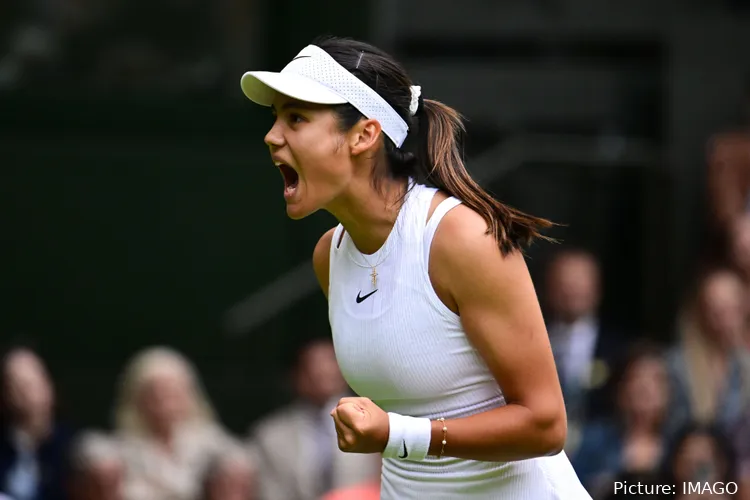
WTA Player Awards Nominations Spark Debate: Paolini’s Snub and Raducanu’s Controversial Inclusion
The announcement of the WTA Player Awards nominees this Wednesday has ignited intense debate among tennis fans and analysts alike. While the awards are meant to celebrate outstanding performances and significant achievements on the tour, this year’s shortlist raised eyebrows, particularly due to the exclusion of Jasmine Paolini from the Most Improved Player of the Year category and the inclusion of Emma Raducanu in the Comeback Player of the Year list.
Jasmine Paolini: A Surprising Omission
Jasmine Paolini’s absence from the Most Improved Player shortlist is one of the most controversial aspects of the nominations. Many in the tennis community were taken aback, considering her remarkable 2024 season. The Italian star made an impressive leap from a year-end ranking of No. 30 in 2023 to No. 4 by the close of 2024, marking a meteoric rise that saw her reach two Grand Slam finals and break through on the biggest stages of the sport.
Paolini’s progression is all the more noteworthy given that she had never previously advanced beyond the second round of a Grand Slam. This year, however, she not only showcased consistent performances but also demonstrated a newfound resilience and tactical depth. Such a transformation seemed to position her perfectly for the Most Improved Player award. Yet, the WTA’s five-player shortlist excluded her, a decision that baffled many fans.
Fans and Analysts React
The backlash on social media was swift and vocal. One user on X (formerly Twitter) expressed their frustration, stating, “Insane that Jasmine Paolini is not among the Most Improved Players.” Another fan pointed out the magnitude of her accomplishments: “Paolini should be in the Most Improved category ’cause she’s not winning Player of the Year and she deserves recognition. Not sure what Kalinskaya is doing there; it should be Fręch. I understand Collins’ nomination, even though it’s a bit weird since she was in a Slam final before.”
This sentiment reflects a broader consensus: while the nominated players have shown improvement, Paolini’s exclusion seems unjustifiable given her significant leap in both ranking and performance. The shortlist includes Anna Kalinskaya, who made strides but did not achieve the same high-profile results as Paolini, as well as Danielle Collins, who has previously reached a Grand Slam final, which makes her nomination somewhat contentious in the eyes of fans.
Paolini’s Stellar Year
Paolini’s journey in 2024 was a testament to perseverance and skill. She reached the finals of two major tournaments and competed fiercely against top-ranked players, proving herself capable of contending with the very best. Her doubles success, particularly alongside Sara Errani, further solidified her status as one of the standout players of the year. The duo’s nomination for Doubles Team of the Year is well-deserved, but many feel that this alone does not adequately reflect Paolini’s overall impact and growth.
Moreover, Paolini’s nomination for Player of the Year, while an honor, seems unlikely to result in a win, given Aryna Sabalenka’s dominant season. This has led some to argue that the Most Improved Player award would have been a more fitting acknowledgment of her efforts and achievements.
The Comeback Player Controversy: Raducanu’s Inclusion
Another point of contention surrounds the Comeback Player of the Year category, particularly the inclusion of Emma Raducanu. The British player has had a challenging few years since her historic US Open victory in 2021. Injuries and inconsistent performances have kept her out of action for extended periods, and she spent a significant portion of 2024 off the tour due to injury recovery and personal decisions. Her nomination has sparked heated debate, with many questioning whether she has truly earned the title of a “comeback” player this season.
One critic on social media remarked, “Raducanu nominated for ‘Comeback Player’ of the year? She skipped half the season and only played the big events if she got a wild card. That doesn’t seem like a comeback.” Another user was even more scathing: “Never has such an average player been so overrated. Three years, and it’s still going on. At some point, it has to stop, right?”
Paula Badosa and Karolina Muchova: The Real Contenders?
In contrast, Paula Badosa and Karolina Muchova are widely seen as the frontrunners for the Comeback Player of the Year award. Both players have battled significant injuries and returned to the tour with notable success. Badosa, in particular, has shown remarkable determination, overcoming chronic back issues to compete at a high level once again. Muchova’s journey has been equally inspiring, marked by her resilience and the quality of her performances upon her return.
The Broader Implications
These controversies highlight broader questions about the criteria and transparency of the WTA’s nomination process. What constitutes “improvement” or a “comeback”? Should rankings, consistency, or headline-grabbing performances weigh more heavily? For many fans, the omission of Paolini and the inclusion of Raducanu suggest a disconnect between the WTA’s selections and the realities of the season.
Furthermore, these debates underscore the passion and investment of tennis fans. They are not merely passive observers but active participants in the sport’s narrative, eager to see players’ achievements recognized fairly and accurately. The uproar over Paolini’s exclusion and Raducanu’s inclusion reflects a desire for more nuanced and representative awards that truly capture the spirit of competition and growth.
Looking Ahead
As the tennis world awaits the final results of the WTA Player Awards, one thing is clear: the discussions sparked by these nominations will continue to resonate. For Jasmine Paolini, the snub may serve as further motivation to prove her doubters wrong in 2025. For the WTA, this controversy could prompt a reevaluation of the criteria and processes used to determine these prestigious honors. Ultimately, the awards are more than just accolades; they are a reflection of the sport’s values and the stories it chooses to celebrate.
Leave a Reply